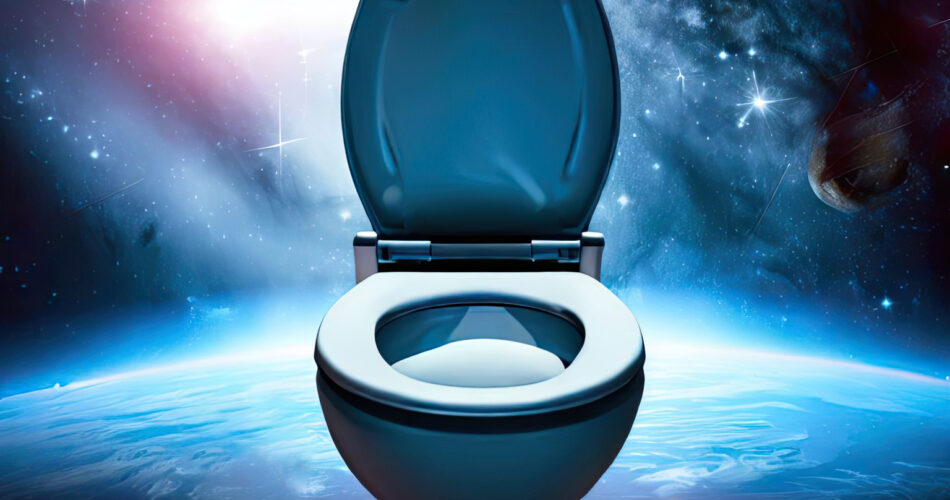Going to the toilet can be a hard job
A private crew of four astronauts arrived at the International Space Station (ISS), where they are settling in and becoming accustomed to the microgravity environment.
As reported here, the group of private tourists landed on a vehicle made by SpaceX and run by Axiom Space. Once they arrived, they had to face the unpleasant realities of using the bathroom in microgravity.
In a blog post, NASA appeared to make reference to the difficulties, claiming that the space tourists had “practiced” what it euphemistically referred to as “hygiene practices” that almost certainly involve the difficult process of reliving one’s life in orbit, as they pointed out.
As using the bathroom on Earth mainly relies on gravity, doing it in space has long required scientific creativity. Never forget, for example, a horrible episode that occurred during the 1969 Apollo 10 mission, when the crew had to deal with a terrible circumstance that was quite far from Earth.
“Give me a napkin quick”, commander Tom Stafford exclaimed, according to the official NASA transcript. “There’s a turd floating through the air”.
The problem has not yet been entirely solved by modern technology. Those involved claim the stench can be horrible, but the current generation of space commodes work by sucking both liquid and solid waste into tubes.
The fact that resources in space are few also makes recycling everything possible a necessity. Back in the summer of 2020, it was announced that the Space Station would get a new toilet that would recycle the water from human waste for reuse. However, NASA later said that it was calling for new lavatory designs for the upcoming Artemis moon missions due to the particular difficulties of using a toilet off-world.
Private spaceflight companies have not yet succeeded in overcoming the obstacle. SpaceX acknowledged in September 2021 that earlier generations of space tourists had experienced difficulties with waste disposal during a crewed mission. We learned more about the issue a month later when SpaceX disclosed that it had resolved it on one of its Crew Dragon spacecraft where the toilet, which uses two separate vacuum tubes for numbers one and two, was leaking and spraying pee onto the craft’s floor.
“We didn’t really even notice it, the crew didn’t even notice it until we got back”, SpaceX’s Bill Gerstenmaier told The New York Times at the time. “When we got the vehicle back, we looked under the floor and saw the fact that there was contamination underneath the floor of Inspiration4.”
When it was reported that during Axiom’s first mission to the ISS, the toilets on the American side weren’t working for a few hours, those on that side of the international divide had to ask the Russians if they could use their facilities, toilet shenanigans continued to occur less than a year later.
“The Russians were very cordial, very accommodating”, Ax-1 tourist Larry Connor told CNN of the debacle. “We operate as one team up there and they said, ‘Hey, come on over and use ours'”
In other words, no amount of preparation on the ground will adequately train space passengers, no matter how wealthy, for the realities of life in orbit. Space remains a hostile environment in both great and minor ways.

